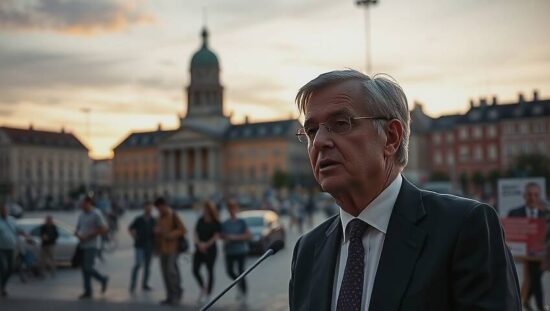The head of the Insa opinion research institute, Hermann Binkert, has doubts that the SPD can still win the federal election with Chancellor Olaf Scholz. “I hold it for possible that the SPD can catch up, but for nearly impossible that it can overtake” Binkert said to the “Handelsblatt”. It is generally known that a 15-percentage-point deficit can hardly be made up for in six weeks, unless something entirely unexpected happens.
Berlin-based political scientist Gero Neugebauer also points out that the polls have shown a negative trend for the SPD since the beginning of 2022. “The central problem of the SPD is the mobilization of its potential” he said to the “Handelsblatt”. The voter shifts in the 2024 European elections had shown that the SPD had lost the voters it had won in 2021.
Binkert noted that the Union has a clear edge in the areas of economy and internal security, while the SPD might be helped by the themes of social security and peace. However, Bremer political scientist Lothar Probst does not believe that social “benevolences” can particularly help the SPD. This has hardly been honored by the voters in the past, and it is also because the SPD has not yet managed to discredit Merz as the “cold Blackrock manager”.
Scholz’s seemingly measured course in the Ukraine issue, however, seems to be well-received by some voters. Whether this is enough to help the SPD in its “catch-up drive” remains to be seen, Probst said to the “Handelsblatt”.
Former Federal Minister and ex-SPD Chancellor candidate Peer Steinbrück also doubts that the SPD can still win the federal election with Scholz. “The probability suggests that the SPD will not be the strongest party with him at the helm” Steinbrück said to the news portal T-Online. Although such probabilities had turned out in some election campaigns, Steinbrück recalled the successful “catch-up drive” of Gerhard Schröder in 2005, and also Scholz’s own successful campaign in 2021. Scholz is still under the impression of the then-won race against all probability and against many election predictions, Steinbrück said.
Scholz was a competent and important minister in his field, but today he is responsible for the overall policy, Steinbrück said. “And of course, he has three years of experience behind him, during which many people have formed or evaluated their opinions about him, which he now carries with him over the hurdles of the election campaign.” This changes the starting position “very significantly”. Steinbrück senses a hypnosis within the SPD: “The hypnosis that one can simply repeat the summer wonder of 2021. I would be much more cautious, if not skeptical, about this.” The situation has, however, changed.
Regarding the non-secret election of Scholz as the party’s chancellor candidate at the party convention on Saturday, Steinbrück said that he personally favors secret ballots, as they provide an honest mood reading of how one is seen within one’s own party. “In this sense, I would always be in favor of a secret ballot, because that, as I believe, presents a greater legitimacy than just an acclamation by hand signals, where most people are afraid to reveal their possible reserve holdings after the motto: That would shame me in the circle of those around me who sit next to me.” Steinbrück himself was elected with 93.5 percent in a secret ballot in 2013.





